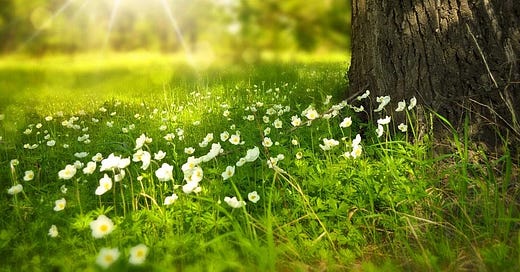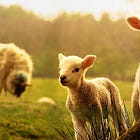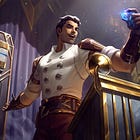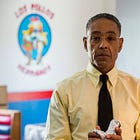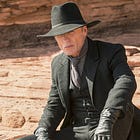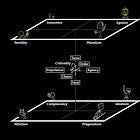1 | INNOCENCE : the Child
Method & Madness | Book II : Archetypical Philosophies
The child’s situation is characterized by this fundamental ambiguity: that he is at once both more and less than an adult. Less, because he has not yet attuned to his autonomy—to the independence of his own freedom. More, because he possesses still the privilege of irresponsibility.
—S. de Beauvoir (ab. M. Hise)
Imagine that, just now…
You’ve opened your eyes for the very first time. Can you see— hear— feel the bright, vibrant wonder of a brand-new world spinning and swirling all around you?
We begin as the Innocent: as Children of this Earth—seeing, hearing, touching, feeling; taking in our brand-new everything for the very first time. We begin as Nothing—we have and know nothing… so we play, and we grow, and we learn. We experience the world as novel and strange, and so invest our faith in what we’re taught to believe: the arcane wisdom of our betters and forebearers.
As the Innocent—as Children—we believe that there are two kinds of people in this world:
The kids, and the grown-ups.
There are people like us—young; who know nothing.
There are people like them—who’re older, and know everything.
At first, we believe that things simply are as they seem—that the world has always been this way. We trust what we’re taught—that what we’re told is true is inherently true, and is Absolutely real. We believe that Adult knowledge is complete—that the grown-ups know with a true certainty when they speak of Good, justice, and morality; of what’s right or wrong to think and believe. But, as we grow and acquire experience, our Innocence begins to erode and degrade; falling inevitably away. We learn that there’s much more to the world—that all there is isn’t just to be held and protected in the comfort of a warm embrace… but instead, that the reality beyond our soft cradle is a cold and uncaring place. And as this truth of the world seeps in, beginning to spill through the cracks and breaks, we can no longer just simply trust that the world is stagnant and safe—an ever-constant, unchanging space which will always remain the same. We know now, after all—through our mounting experience—that years pass, and the world changes…
And time will never turn back.
Once we’ve come to this place—once the walls around our Eden have begun to crack and fall away—
Neither can we.
Where one philosophy breaks, another will emerge to take its place. A person, after all, can’t have no mindset at all.1 Everyone interacts with a world that they see. Everyone has therefore—by necessity—developed some kind of Method of their own; a mindset, in response to a world-state, by which they choose to exist.
For someone to say that they have no Method… is an mindset in itself.
To claim that one has no philosophy… is, itself, a philosophy.2
Here is the place in which the Child must decide where he-or-she goes next. The walls are breaking—crumbling away. A whole new world lies beyond them. A vast world filled with possibility—teeming with a terrible and arcane unknown. Would you choose to cower in fear, and bury your head in the sand? To embrace Complacency, attempting to retreat into your fast-fading Innocence—denying that the wall could be crumbling at all? Or will you rush to the fore as one of the Righteous, to guard and defend that wall against whatever it is that batters its stones—against whatever mysterious Evil threatens to destroy your home?
Philosophy: a mindset. a worldview. The way that one chooses to see the world, and thus approach living one’s life.
Αρχή | archí: origin
Τύπος | týpos: form
An Archetypical Philosophy is the logical basis of a person’s attitude, derived from observation of how he-or-she chooses to exist.
That is, of course, unless they have no mind to set in the first place.
As in Sartre, where like the choice to not choose remains the choice made, a Method which refuses to acknowledge itself as Method remains still a Method—just simply one which denies its own nature.

